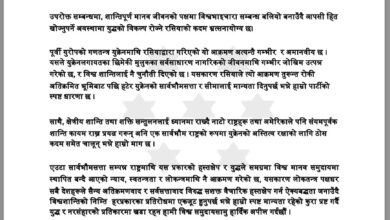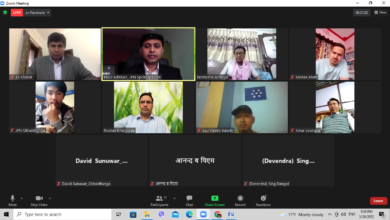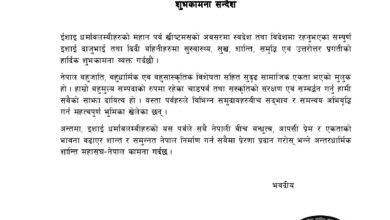Ideintity Politics- A Lost Cause or a postponed opportunity?
Meditation of an Aspirant and Aspiring Community
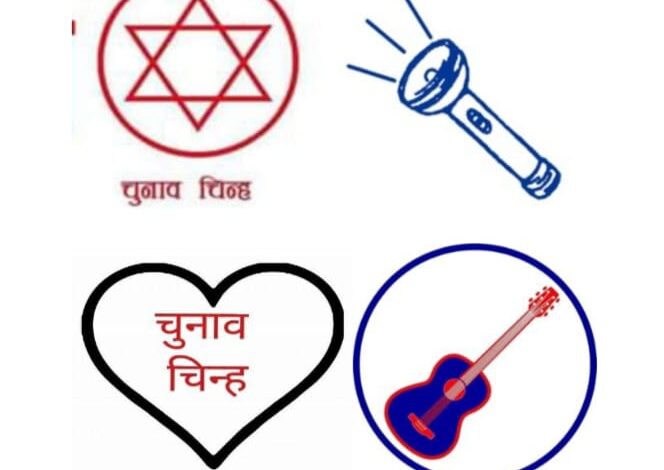
November 15-
Even as we approach the general election for Federal Parliament and Province Assembly, the hope of parties based on certain religious community is still flickering-it may either flicker out or burn bright removing much doubt.
What is Ideintity Politics?
Oxford Language defines Ideitity Politics as “a tendency for people of a particular religion, race, social background, etc., to form exclusive political alliances, moving away from traditional broad-based party politics.” Encyclopaedia Britanica has defined it as a “social activity by or on behalf of a racial, ethnic, cultural, religious, gender, or other group, usually undertaken with the goal of rectifying injustices suffered by group members because of differences or conflicts between their particular identity (or misconceptions of their particular identity) and the dominant identity (or identities) of a larger society.”
It is a deparure from the broad-based, tradiytional, cadre-based political parties, and a need of the hour when the establishment was exclusively monolithic, monopolitic- that is, single religious cultural one.
The marginalized Christian community also tried to cash on identity politics, using their base as a brgaining chip and succeeded in gaining one seat in the second Constituent Assembly elections in 2013. Some others also thought it was opportune to set up new parties sooner and later. 
Brief History of Identity Politics
Identity politics in the United States developed in the 1980s and ’90s as a reaction to the perceived failure of liberal civil rights legislation to eliminate identity-based inequities and injustices, such as racial and sexual discrimination. In the view of many leftist critics, liberal ideals of equality, such as equal rights, equality before the law, and equality of opportunity, were misguided and ultimately counterproductive, because their transcendent nature (their application to all persons, irrespective of identity) made it difficult in practice to justify policies designed to achieve greater social equity through direct assistance to historically oppressed and exploited groups, particularly African Americans. Indeed, during this period conservative activists and government officials frequently invoked the liberal value of “colour blindness” to resist racial affirmative action programs in education, employment, government contracting, and other areas. A related criticism was that liberalism’s emphasis on identity-independent equality rendered it capable of recognizing only the most overt and obvious identity-based injustices, not those that were relatively indirect, subtle, or systemic (see critical race theory). Defenders of liberalism and other critics argued in response that the continued pursuit of identity politics had led to a fracturing of oppressed and exploited populations into numerous inward-looking interest groups whose differing priorities obscured their common goals and challenges and prevented the kind of mass mobilization necessary to secure their basic rights.
Is the time of Indentity Politics over?
Some have satrted asking if a political party based on a particular religious community can have any meaningful future in a multi-culture and liberal country like Nepal. Many were optimistic about it, though with a pinch of salt. But the latest development of the party divisions, inner party conflicts and serious failure of the leadership in terms of maintaining high, unquestioned ethical standard and responsible speech and dealings have almost eliminated any such hope.
Yet, a sizeable mass, of the lay believers, still is much enthusiastic- and the candidates are counting their victory on such a base! 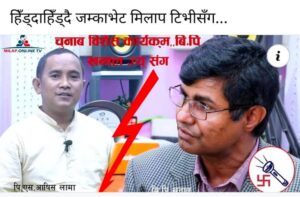
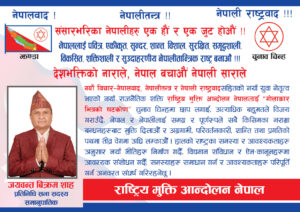
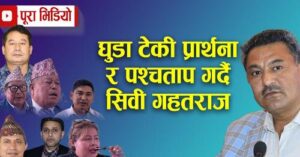
There was a unifcation attempt last April between two major partries led by people from the community. The unification brought much hope and sensation, but alas, only ended with a whine as senior party leadership got embroiled in charges of fraid and exposure. 
Now, with the general elections at the corner, none of them seem to have reached out to their base any meaningfully and satisfactorily.
Way forfward?
There is still a possibility of political aspirants who could come together forgiving and forgetting their past petty personal rivalries. But such a move demands that a new, respectable and respected face be the leader of the party. If such an understanding is reached, next five years will prove an example, a good one at that, for S. Asia and the entire world that a good faiath-based identity politics is not so bad and a lost cause after all.It has transpired from a reliable source that community leaders are still hopeful about raising such a face who can be accetable to the majority if not to all, and that there is no other option to forward the agenda of the community except through a concerted political effort by way of a political party.
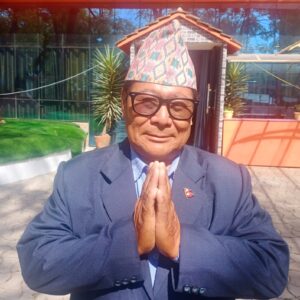
Many a good souls have been n calling the community to vote for any one of the parties and/or candidates from the faith community-that way they would have a cumulative effect and presence at national political database.
Who are the political players from the community?
Apart from the one who are in other parties, these are some of the players seen currently.
The election, which happens on November 20, will clarify how they may move ahead.

